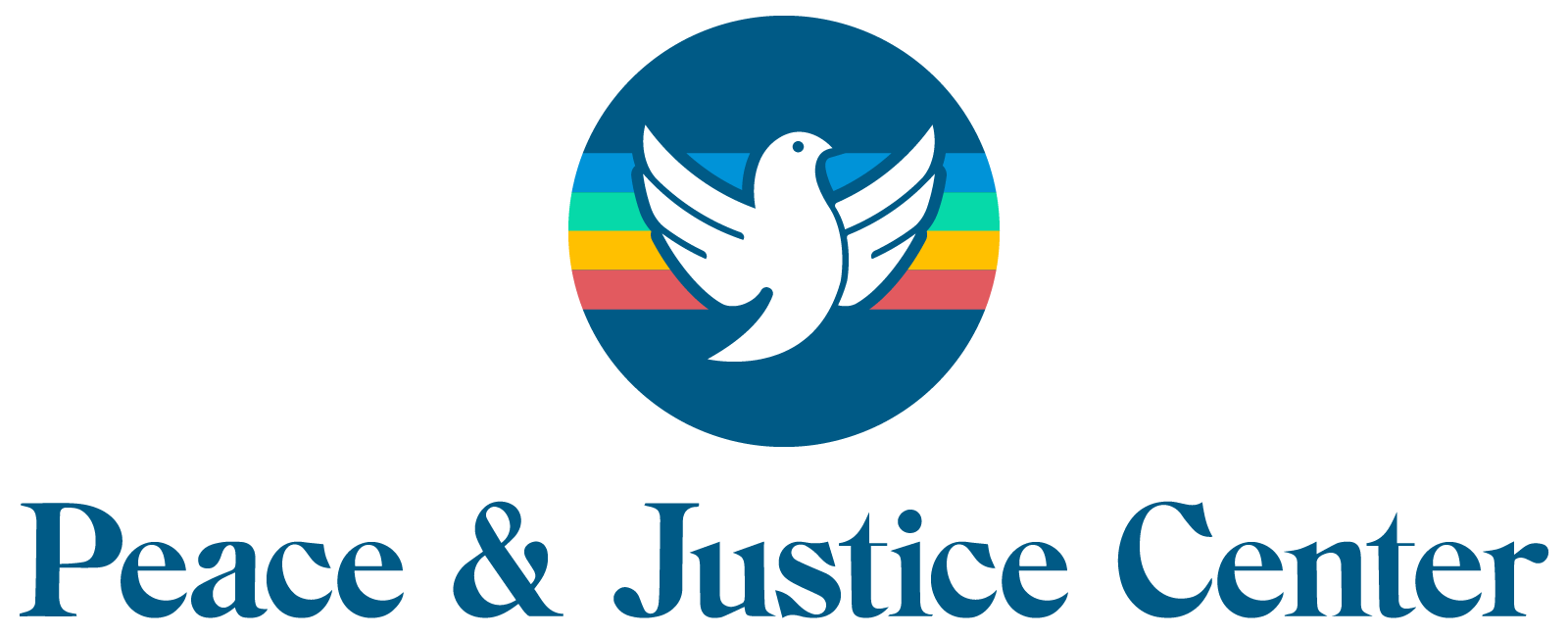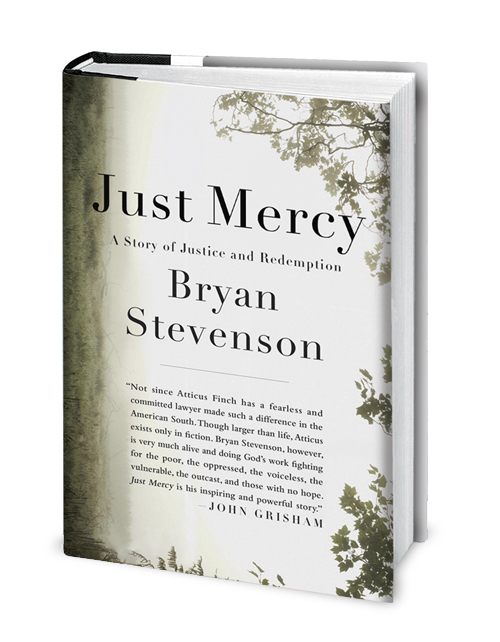[vc_row][vc_column][vc_column_text]For years I have had some degree of awareness that the criminal “justice” system in the United States is anything but just. People of color are proportionality taken out of society and forced into bondage and indentured servitude systematically. I knew this to be true in a general way, but the implications of this truth had not really sunken in to my white suburban reality. It was not until I read Just Mercy by Bryan Stevenson that I learned the true barbaric nature of the America’s industry of imprisonment.
In 1972, the prison population in the US was 200,000. Today it is over 2.2 million, of which, 40% are African American despite being only 13% of the country’s population. This disproportionate reality works to sustain the system of racial terror and oppression that the United States has not been a day without.
Just Mercy is the story of Bryan Stevenson’s journey from recent Harvard Law School graduate in the early 1980s to civil rights warrior through his work as a lawyer in Alabama and Georgia by the 2000’s. But it is much more than that. It is an indictment of the death penalty and exponential increase in the prison population since the 1980s. It is a look into the depths of American racism and Southern terrorism. It is a silver lining in the perseverance and strength in Southern black communities. And above all, it is a chronicle of the personal stories of death row inmates Stevenson represented in their battle for just mercy.
Throughout the book, Stevenson gives life to individual cases of real people suffering a lifetime of consequences for one poor decision made in the past to demonstrate that the factors leading up to the ‘crime’ are complex and often ignored by prosecutors and even judges. Stevenson righteously claims “each of us is more than the worst thing we have done,” so why do we force absolute penalties on members of our society capable of remorse and redemption? The label of ‘criminal’ is condemnation of complex human beings, which poses a major rhetorical problem that must be rejected in the fight to end this era of mass incarceration.
Children as young as 12 are sentenced as adults and raped and abused in adult prisons. Women imprisoned for nonviolent crimes where sexual assault and verbal harassment by male prison guards with access to all facilities including showers and bathrooms occurs frequently and often goes unreported. Mentally disabled prisoners’ conditions are ignored as they are sentenced to die by the hand of the State. All these stories make this book consistently heartbreaking. With each personal story, courtroom battle, and denial of justice, along with Stevenson’s personal reflections as he took on the system, I found myself with tears at least once a chapter.
The featured stories allowed me to see the actual mechanisms that make the prison system racist and oppressive. While some more dissident members of the media name it as such, the processes that allow it to continue are too deep and complex to be understood via a news report. The ‘criminal justice system’ is corrupt because of situations where poor people are inadequately defended by public attorneys due to neglect or ineptitude. Police and prosecutors work to fabricate testimonies and evidence against powerless and unpopular defendants. Black community members are targeted as suspects for no other reason than the color of their skin. Lawmakers pass laws that disproportionately punish poor people and people of color with little acknowledgement or resistance.
We as a nation do not address or acknowledge the history of slavery and the era of Southern terrorism that lasted from reconstruction to the mid 1900’s and their continuing contributions to social hierarchy, power structures, and personal biases that so deeply shape our society. Today, with around 7 million citizens barred from their right to vote because they are either in jail, on parole, or on probation, it seems as though this system was purposefully created to maintain itself. I wonder how our election results would change if we were truly a free, democratic society?
Through the decades of non-profit legal service across the South, Stevenson faced personal insults, death threats, demoralizing courtroom losses, and both overt and veiled racism that would make most people throw their hands up in defeat. I could not help but feel cynical about the possibility of success achieved within the system, but with the true conviction of Bryan Stevenson, I maintain a shadow of hope.
What became clear to me from reading this book is that the European and American genocide of people of color is far from over. With each social justice victory that is achieved in our country, a new wave of fear grips white communities with a varying amount of subtlety: Fear of black economic independence, fear of interracial relationships, fear of equality, and fear of a world not dominated by the white man. This fear comes out in different ways for different people, even leading to extremist reactions such as the tragic terrorist attack on protesters in Charlottesville. As a white man involved in social justice work, I have come to accept that my perceptions of issues facing our country have limits. This can be difficult for me and other men and white people to accept. These limits can be found consistently in our complacency or even support of the modern system of slavery and government sourced murder also known as the “Criminal Justice System.”
Just Mercy is a book that I will remember for the rest of my life. Bryan Stevenson’s writing is clear and easy to follow, even as he details complex legal issues and heart wrenching tragedy. His tireless efforts inspire more than words can describe as he searches for just mercy in a system that offers the opposite. I am an Environmental Studies major in college, so naturally climate change has been the most pressing issue in my mind that society needs to address; but after reading Stevenson’s work I have realized that our system of mass incarceration is at a similar crisis point if not more so and MUST be addressed now. With Donald Trump and the Democratic and Republican parties continuously undermining the power of the American people, we must show that 300 million citizens are stronger than the few political elites, and find just mercy for those who our culture has humiliated and locked away.
by Rob Persons, PJC Peacework Intern Summer 2017
[/vc_column_text][/vc_column][/vc_row]

